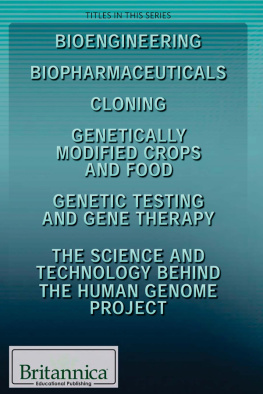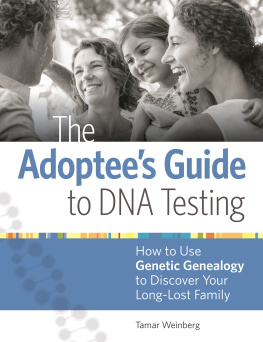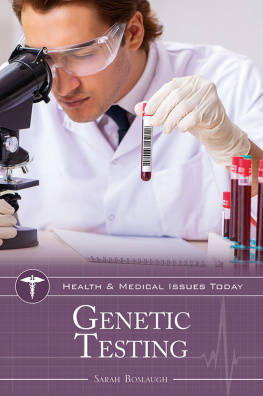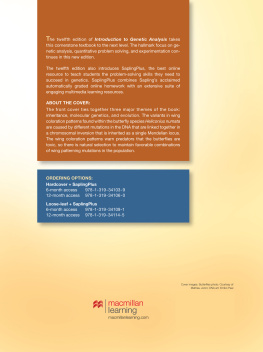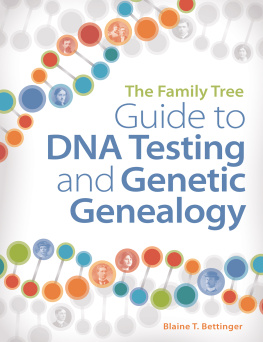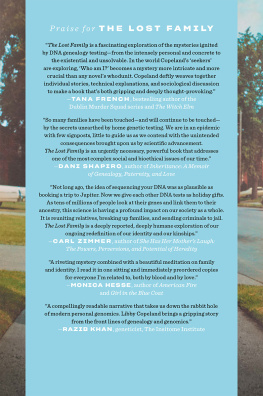The merger of information technology and genetics into cybergenetics is an important development in health science. This book offers crucial critical insights into revamped versions of genetic determinism, the role of online platforms and companies in medical research, and questions of trust with regards to the digital technologies that increasingly organize our healthcare. Harris, Kelly and Wyatt provide a much needed guide to the cybergenetics future.
Jos van Dijck, Professor of Media Studies, University of Amsterdam
Genetics has long remained an obscure field, carefully hidden from public consciousness. Now, in contrast, it is has become both mainstream and big business. Typically, genetic results for humans are highly personal and intensively political at the same time. Through its mixed and playful methodology and its broad theoretical framing, CyberGenetics demonstrates how the public view of genetic testing and personal genomics as seen through social media and the Internet revolves around several explosive axes: privacy vs. exposure, fear vs. hope, participation vs. exploitation. This book has much to offer for those interested in the exploration of identity, self and belonging through the examination of genetic avenues and informed debates about science and politics.
Gsli Plsson, Professor Semi-Emeritus,
Department of Anthropology, University of Iceland
This book is a powerful antidote to simplistic portrayals of online genetics as either empowering or harming test-takers. Using novel and innovative methodologies to explore how users and health professionals make sense of online genetics, it provides fascinating and also troubling insights into the meaning of online genetics at the personal, social, and political levels.
Barbara Prainsack, Professor of Sociology,
Department of Social Science, Health & Medicine, Kings College London
In CyberGenetics, Anna Harris, Susan Kelly and Sally Wyatt have successfully combined close reading of an impressive body of work from science and technology studies, internet studies, and the sociology of health and illness, with a deep knowledge of trends and developments in direct-to-consumer genetic testing. They offer us a critical and rigorous account of how genetic and digital worlds are remaking each other and, along the way, experiment with writing in alternative voices, from autobiologies, future scenarios, to poetry. The result is an enjoyable, thoughtful, and imaginative book, which offers an indispensable guide to non-experts, students, and researchers wishing to make sense of what happens when genetics goes online.
Richard Tutton, Senior Lecturer,
Department of Sociology, Lancaster University
CyberGenetics
Online genetic testing services are increasingly being offered to consumers who are becoming exposed to, and knowledgeable about, new kinds of genetic technologies, as the launch of a 23andMe genetic testing product in the United Kingdom testifies. Genetic research breakthroughs, cheek-swabbing forensic pathologists, and celebrities discovering their ancestral roots are littered throughout the North American, European and Australasian media landscapes. Genetic testing is now capturing the attention, and imagination, of hundreds of thousands of people who can not only buy genetic tests online, but can also go online to find relatives, share their results with strangers, sign up for personal DNA-based musical scores, and take part in research. This book critically examines this market of direct-to-consumer (DTC) genetic testing from a social science perspective, asking: What happens when genetics goes online?
With a focus on genetic testing for disease, the book is about the new social arrangements which emerge when a traditionally clinical practice (genetic testing) is taken into new spaces (the internet). It examines the intersections of new genetics and new media by drawing from three different fields: internet studies, the sociology of health, and science and technology studies.
While there has been a surge of research activity concerning DTC genetic testing, particularly in sociology, ethics and law, this is the first scholarly monograph on the topic, and the first book which brings together the social study of genetics and the social study of digital technologies. This book thus not only offers a new overview of this field, but also offers a unique contribution by attending to the digital, and by drawing upon empirical examples from our own research of DTC genetic testing websites (using online methods) and in-depth interviews in the UK with people using healthcare services.
Anna Harris completed a medical degree at the University of Tasmania, and a Masters and PhD in medical anthropology at the University of Melbourne. She has been a post-doctoral researcher at the Universities of Maastricht and Exeter. She has published in clinical and social science journals, and has her own blog.
Susan Kelly is Associate Professor of medical sociology at the University of Exeter, and Senior Research Fellow in Egenis (Exeter Centre for the Study of the Life Sciences). She earned a PhD in sociology at the University of California, San Francisco, followed by a post-doctoral position in the Stanford Center for Biomedical Ethics.
Sally Wyatt is Programme Leader of the e-Humanities Group at the Royal Netherlands Academy of Arts and Sciences, and Professor of digital cultures in development at Maastricht University. She is the founding co-editor (with Andrew Webster) of the Health, Technology and Society series published by Palgrave Macmillan.
Genetics and Society
Series editors:
Ruth Chadwick, former Director of Cesagene, Cardiff University; John Dupr, Director of Egenis, University of Exeter and University of Edinburgh; David Wield, Director of Innogen, Edinburgh University; and Steve Yearley, former Director of the Genomics Forum, Edinburgh University.
The books in this series, all based on original research, explore the social, economic and ethical consequences of the new genetic sciences. The series is based in Cesagene, one of the centres forming the ESRCs Genomics Network (EGN), the largest UK investment in social science research on the implications of these innovations. With a mix of research monographs, edited collections, textbooks and a major new handbook, the series is a valuable contribution to the social analysis of developing and emergent biotechnologies.
Series titles include:
New Genetics, New Social Formations
Peter Glasner, Paul Atkinson and Helen Greenslade
New Genetics, New Identities
Paul Atkinson, Peter Glasner and Helen Greenslade
The GM Debate
Risk, politics and public engagement
Tom Horlick-Jones, John Walls, Gene Rowe, Nick Pidgeon, Wouter Poortinga, Graham Murdock and Tim ORiordan
Growth Cultures
Life sciences and economic development
Philip Cooke
Human Cloning in the Media
Joan Haran, Jenny Kitzinger, Maureen McNeil and Kate ORiordan
Local Cells, Global Science
Embryonic stem cell research in India
Aditya Bharadwaj and Peter Glasner
Handbook of Genetics and Society
Paul Atkinson, Peter Glasner and Margaret Lock
The Human Genome
Chamundeeswari Kuppuswamy
Community Genetics and Genetic Alliances
Eugenics, carrier testing and networks of risk
Aviad E. Raz
Neurogenetic Diagnoses
The power of hope and the limits of todays medicine
Carole Browner and H. Mabel Preloran
Debating Human Genetics
Contemporary issues in public policy and ethics


